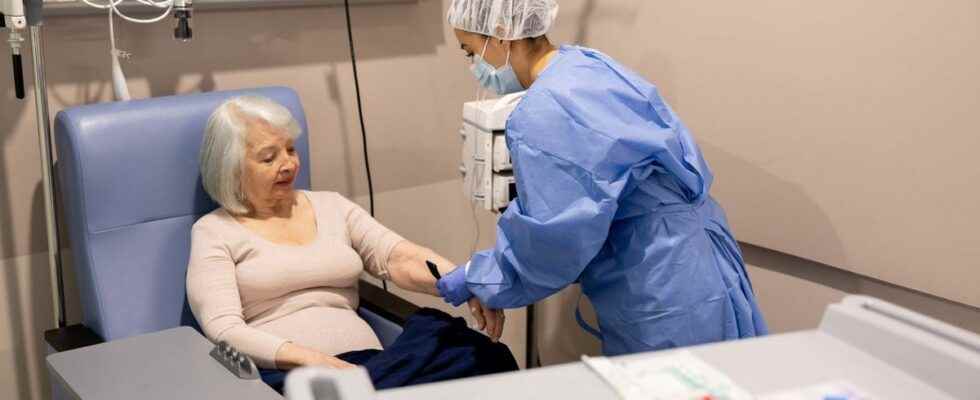Published on
Updated
Reading 3 mins.
In a press release, the French Society of Predictive and Personalized Medicine (SFMPP) denounces the numerous refusals to cover medicines from the High Authority for Health (HAS). The SFMPP points in particular to anti-cancer drugs that have not been the subject of a phase III study, although they are validated by the European Medicines Agency. The point of view of Dr. Yvan Krakowski, oncologist in Bordeaux and president of the French-speaking association for oncological support care (AFSOS).
The French Society of Predictive and Personalized Medicine (SFMPP) denounces in a press release the refusal to cover seven anticancer drugs of the immunotherapy and targeted therapy type, which target rare genomic alterations, in particular from the HAS. Reason given: a medical service rendered “insufficient”.
Repeated unfavorable opinions from the HAS which “lead to refusal of reimbursement of these drugs” And “raise the question of loss of opportunity for French patients“says the SFMPP.
What does the “insufficient medical service rendered” assessment consist of?
The High Authority for Health (HAS) is the body that issues an assessment of a treatment, linked to the medical benefit rendered (SMR) by the drug. The improvement in actual benefit (ASMR) is therefore a classification in five levels, ranging from I to V, the first considering the drug as bringing a “major” improvement to the fifth, which considers the improvement as being “non-existent “, which means that there is an “absence of therapeutic progress” on the part of the drug evaluated, specifies the HAS site. This evaluation of a treatment by the HAS intervenes in the setting of its price, in particular for reimbursements.
Medicines considered to have an “insufficient” SMR
Regarding the refusal of seven anticancer drugs, which are the following targeted therapies and immunotherapies – selpercatinib, pralsetinib, capmatinib, larotrectinib, entrectinib, pembrolizumab and dostarlimab – HAS considers that in the absence of phase III trials or comparative trials, the “medical benefit rendered (SMR) is insufficient”. In other words, the therapeutic value of these drugs has not been established.
According to the SFMPP, the argument does not hold because it is practically impossible to require that large-scale comparative studies be carried out to validate the effectiveness of drugs that target rare diseases. “Studies related to rare mutations cannot be carried out on large numbers of patients, precisely because of their rarity, which is why we now only have phase II or non-comparative trials.“the statement read.
To support her remarks, she takes the example of selpercatinib, a treatment against lung cancer carrying a rare genetic mutation, which “just showed 84% response rates in a publication of 316 global cases“.”A so-called comparative or randomized trial would not even be ethical under these conditions.“says the SFMPP.
Medicines authorized in Europe
In its press release, the SFMPP again emphasizes the difference in position of the HAS, vis-à-vis that of the European Medicines Agency (EMA). “Today, 28% of marketing authorizations issued by the EMA in oncology are not from phase III studies and 23% do not have a comparative arm” indicates the SFMPP. The seven drugs rejected by HAS have also been authorized in the European Union and the United States.
The opinion of Dr Yvan Krakowski, medical oncologist and president of AFSOS
“Such a situation can obviously create a kind of two-tier medicine, for people with access to treatment – either abroad or through clinical trials – and the others. Nevertheless, France has a strict system of verification, control and analysis of medicines, which also represents a form of safety for patients. The challenge is to adjust the effectiveness of treatments and their safety as well as possible, while improving the conditions for negotiations between health authorities and laboratories. This can constitute a major obstacle in the reimbursement of certain treatments“.
